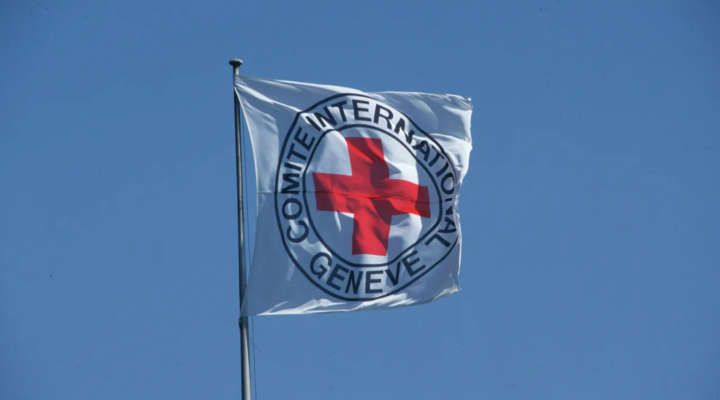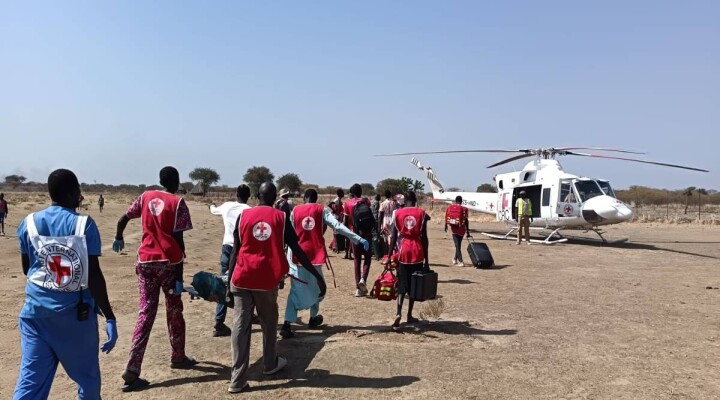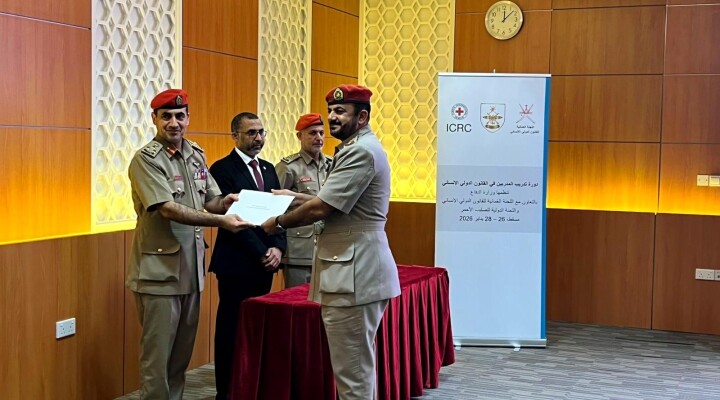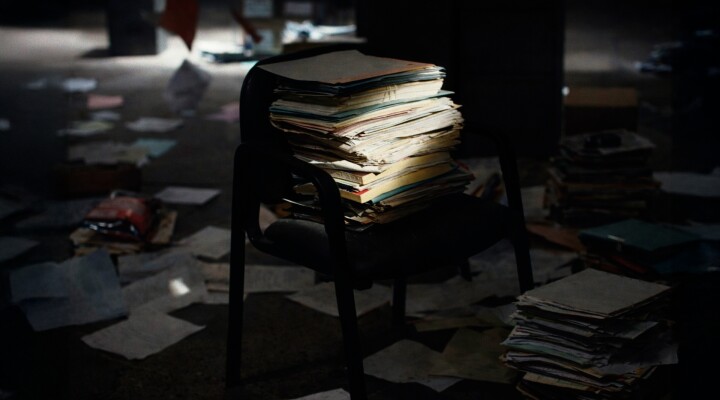Somalia: Risk of Undetected Covid-19 in Camps for Displaced
There have been an estimated 200,000 confirmed cases of Covid-19 across Africa. The World Health Organisation believes the virus is accelerating across the continent, spreading out from densely populated urban areas. Cases have been rising in Somalia’s capital Mogadishu, a city already disrupted by years of conflict, and struggling to support thousands of internally displaced people (IDP). Habiba Haji, who is 43, lives in one of the camps for the displaced.
“I used to work in the town but now it’s all closed because of COVID-19,” she says. “There’s no work. Everybody is staying in their own homes. We are told not to leave our homes. Work has stopped because of this disease called coronavirus so that it doesn’t spread.”
There are fears now that the virus will spread, undetected, among the crowded camps, where maintaining distance, sticking to hygiene rules, and staying healthy is a huge challenge.
“We are concerned that many COVID cases are going undetected, especially in the internal displaced camps,” explains ICRC health coordinator Ana Maria Guzman. “Because of the ongoing conflict in Somalia, and also we are facing floods right now in Somalia, there is an increase in the number of internal displaced population into urban areas and this creates the perfect environment for infectious disease. That includes COVID-19 but not only COVID-19, acute watery diarrhoea and measles cases that have already been reported into the clinics.”
The ICRC, working with the Somali Red Crescent Society, has begun disinfecting the camps. Testing and contact tracing is underway as well: it’s a complex task in crowded displacement camps, many people can’t provide contact details, others do not have mobile phones.
While evictions from some IDP settlements have been suspended, reducing the potential for secondary displacement, added vulnerabilities and a further spread of COVID-19, the situation remains one of concern because more displaced are arriving every day, fleeing not just conflict, but the floods which have recently hit Somalia.
“People have poured into the camps,” says Habiba Haji. “Some have houses, but others are sleeping in the open. They need support. The rains are falling, and they don’t have anywhere to go. No blankets to keep warm. They don’t have food to eat.”
The conditions pose a huge threat to the health of the most vulnerable, especially as other pressing needs—like a day’s wages, food, and shelter—can easily take precedent for families over the invisible and silent threat of COVID-19.
The Somali Red Crescent and the ICRC are working with local communities to prevent its spread, going door to door with advice on how to stay safe, tracing contacts, and supporting local health workers.
KEY FACTS
Contact tracing efforts by the ICRC and the Somali Red Crescent Society as of the 8th of June:
- 193 suspected COVID-19 cases traced
- 454 case contacts identified
- 185 case contacts reached
- Disinfection and information campaigns by Somali Red Crescent volunteers ongoing in some 30 displacement camps, reaching more than 105,000 people
- Nearly 700,000 people reached in communities through the ICRC and Somali Red Crescent COVID-19 response in Somalia
- More than 2,300 confirmed COVID-19 cases (1,800 active cases) and 83 reported deaths from COVID-19 in Somalia as of June 8th (Source: OCHA)
For further information please contact:
Mohamed Abdikarim, ICRC Somalia spokesperson, +254 770 171 756
Crystal Wells, ICRC Africa spokesperson, +254 716 897 265, cwells@icrc.org
SHOTLIST
Location: June 2020
Length: Mogadishu, Somalia
Camera:
Filming date:
Copyright: ICRC access all
On Screen Credit: ICRC or logo
0:00 – 0:13 Various children in IDP camp
0:13 – 0:18 Elderly woman in IDP camp
0:18 – 0: 21 Close up her hands
0:21 – 0:29 Crowds in IDP camp
0:29 – 0:35 Makeshift shelters IDP cam
0:35 – 0:56 Soundbite (Original Somali) Habiba Haji IDP
“I used to work in the town but now it’s all closed because of COVID-19. There’s no work. Everybody is staying in their own homes. We are told not to leave our homes. Work has stopped because of this disease called corona virus so that it doesn’t spread.”
0:56 – 1:09 Various, pan washing, IDP camp
1:09 – 1:18 Wideshot women and children IDP camp
1:18 – 1:34 Various food market IDP camp
1:34 – 2:01 Soundbite (Original English) ICRC health coordinator
Ana Maria Guzman. “We are concerned that many COVID cases are going undetected, especially in the internal displaced camps. Because of the ongoing conflict in Somalia, and also we are facing floods right now in Somalia there is an increase in the number of internal displaced population into urban areas and this creates the perfect environment for infectious disease. That includes COVID but not only COVID, acute watery diarrhoea and measles cases that have already been reported into the clinics.”
2:01 – 2:36 Various, disinfecting shelters, latrines etc in IDP camp
2:36 – 2:52 Soundbite (Original Somali) Habiba Haji IDP
“People have poured into the camps. Some have houses, but others are sleeping in the open. They need support. The rains are falling and they don’t have anywhere to go. No blankets to keep warm. They don’t have food to eat.”
2:52 – 2:58 Habiba washing her hands
2:58 – 3:13 Various women with young children
3:13 – 3:21 Disinfecting team walking away



